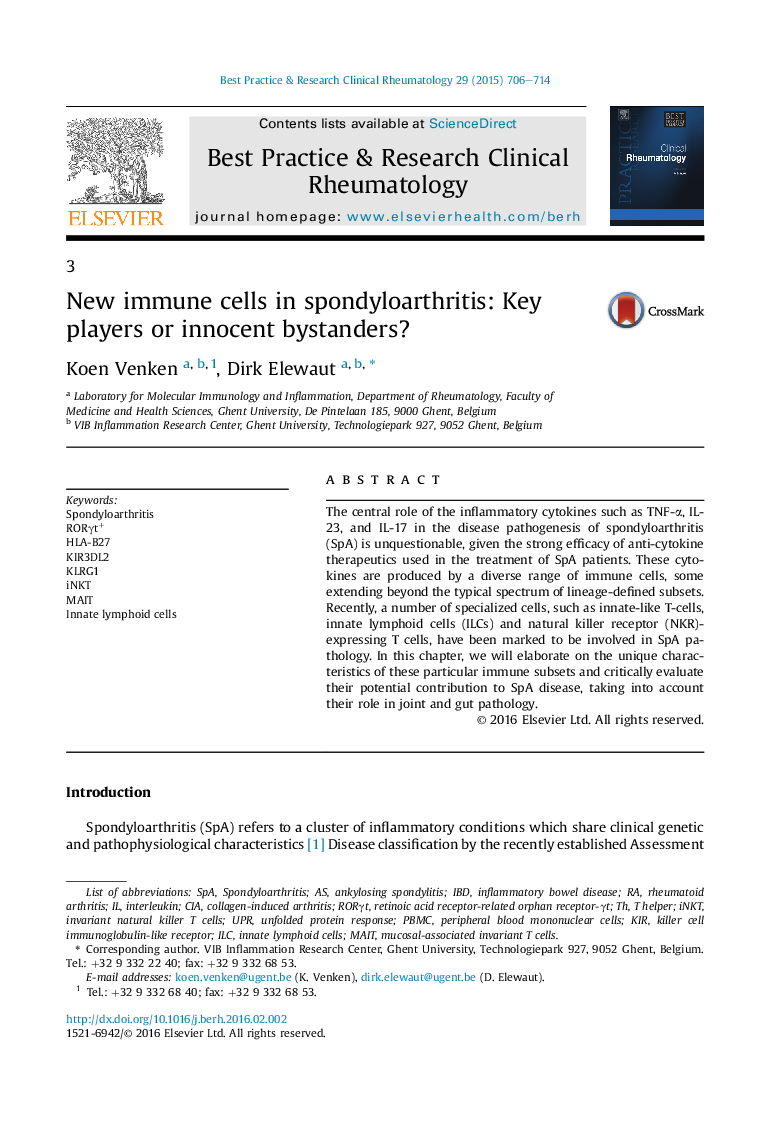| Article ID | Journal | Published Year | Pages | File Type |
|---|---|---|---|---|
| 3342812 | Best Practice & Research Clinical Rheumatology | 2015 | 9 Pages |
The central role of the inflammatory cytokines such as TNF-α, IL-23, and IL-17 in the disease pathogenesis of spondyloarthritis (SpA) is unquestionable, given the strong efficacy of anti-cytokine therapeutics used in the treatment of SpA patients. These cytokines are produced by a diverse range of immune cells, some extending beyond the typical spectrum of lineage-defined subsets. Recently, a number of specialized cells, such as innate-like T-cells, innate lymphoid cells (ILCs) and natural killer receptor (NKR)-expressing T cells, have been marked to be involved in SpA pathology. In this chapter, we will elaborate on the unique characteristics of these particular immune subsets and critically evaluate their potential contribution to SpA disease, taking into account their role in joint and gut pathology.
